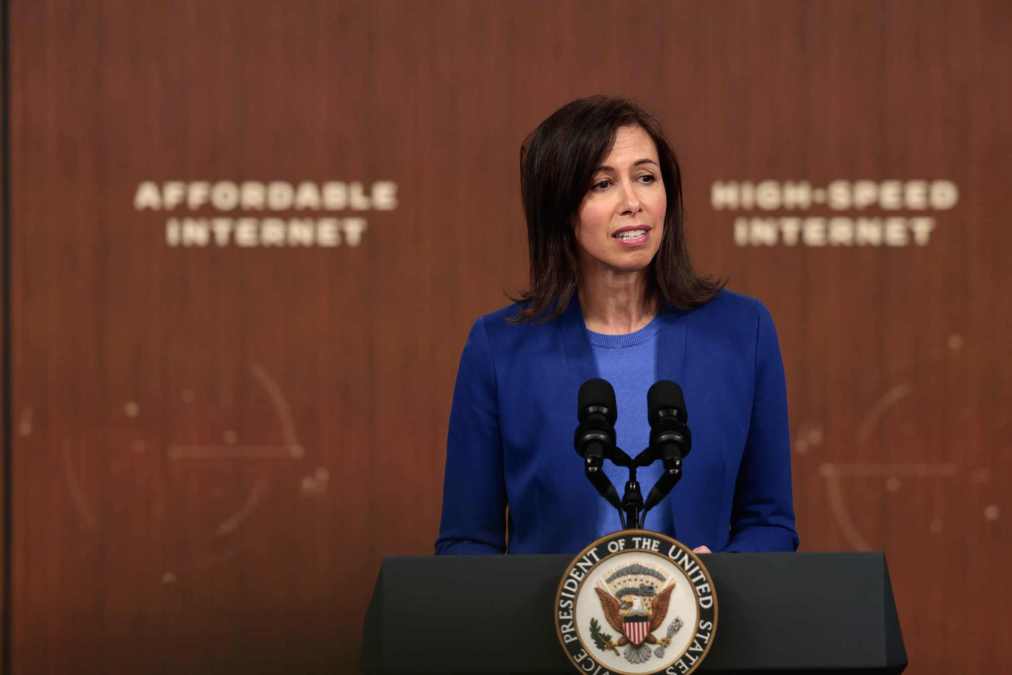FCC seeks to expand E-Rate program to fund Wi-Fi hotspots

Comments are due on Monday for the Federal Communications Commission’s proposed changes to the E-Rate program that would allow schools and libraries to apply for funding for internet services to ensure that education can continue remotely.
FCC Chair Jessica Rosenworcel said in a press release that since the pandemic, schools and libraries found ways to support remote learning by distributing Wi-Fi hotspots to students to support remote learning. In some cases, those hotspots were paid for using the FCC’s one-time Emergency Connectivity Fund, which is set to be phased out in June.
“The program made a great downpayment on closing the digital divide, but it was a one-time effort,” said Rosenworcel, a Democrat. “Supporting today’s libraries and schools means updating the E-Rate program to ensure communities can learn without limits and keep connected.”
Administered by the Universal Service Administrative Company with guidance from the FCC, the E-Rate program provides monthly discounts on internet services to schools and libraries. Discounts depend on the applicant’s level of poverty and whether their services are in an urban or rural area. Discounts range between 20-90% of the cost of services.
The proposed changes to the program would allow applicants to request funding for internet services that extend beyond their brick and mortar buildings in order to support remote learning and access to virtual library services.
“Advances in technology have changed the modern learning environment to increasingly employ interactive online education tools that can be used anywhere, at any time, allowing students to develop the digital skills needed to prosper in the 21st century,” the FCC’s proposed changes read.
Rosenworcel and FCC Commissioner Geoffrey Starks, who’s also a Democrat, have each issued statements of support for the proposed rule changes and the impact they would have on improving the “homework gap,” the disparity between students with access to reliable internet connections and those without.
“These devices with the same restrictions for E-Rate funded hotspots as any other E-Rate funded connections in a school, would update and modernize the E-Rate program consistent with how education occurs today,” Starks wrote.
FCC Commissioners Brendan Carr and Nathan Simington, both Republicans, expressed their dissent for the proposed changes, arguing that they go beyond the scope of the agency’s Congressional authority. Simgington called the proposed expansion “lawless and wasteful.”
“Just a few weeks ago, we were told that school buses are actually classrooms,” Simington wrote. “Today, we are asked to believe that when Congress says schools, classrooms and libraries, it actually means private homes, offices, amusement parks and really, anywhere and everywhere a mobile hotspot could be used.”
In their statements, both Carr and Simington pointed to their earlier objections against another recent change to the E-Rate program that allows funds to be used to deploy Wi-Fi on school buses. Those changes were also criticized by Republican members of Congress.
“Today’s [notice of proposed rulemaking] seems to have replaced the schoolhouse with an ‘anytime/anywhere’ approach in the ‘modern educational environment,’” Carr wrote. “And whatever one thinks about the modern educational environment, the FCC is not free to ignore the express limitations on our authority imposed by Congress–no matter how laudable the agency’s intentions may be.”
FCC Commissioner Anna Gomez has not publicly issued a statement on the proposed changes.






